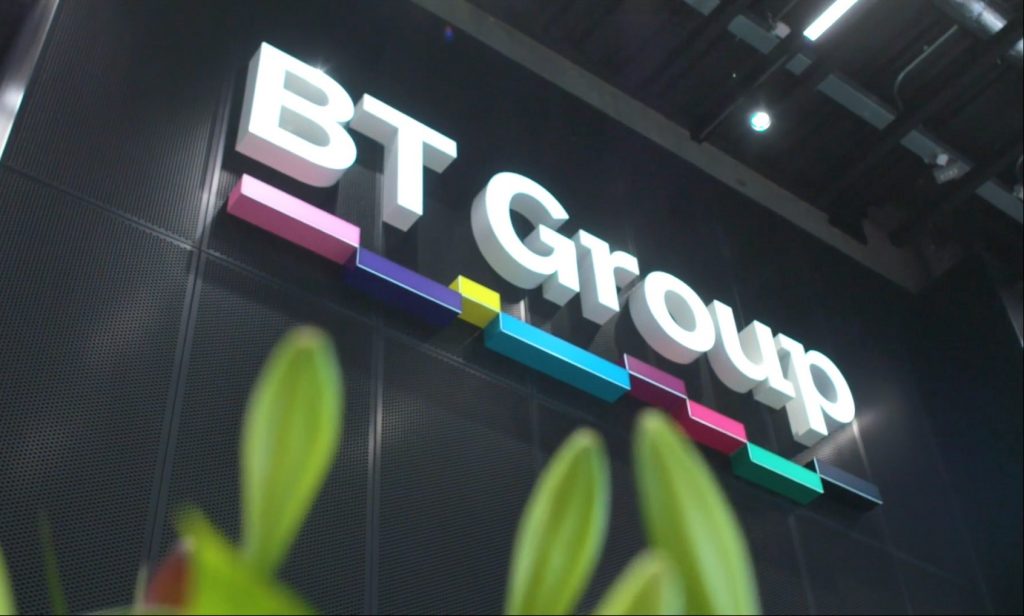BT announces live TV tech breakthrough
December 8, 2023
By Colin Mann

BT has unveiled what it describes as a pioneering new technology, designed to be a more reliable, quality-focused and sustainable way of delivering live content over the Internet. Multicast-Assisted Unicast Delivery (MAUD) technology is aimed at improving viewer experiences and increasing the efficiency of the complex journey that content takes to reach them. Major broadcasters, including the BBC, will be involved in evaluating and potentially trialling the technology to support a range of live content.
Unlike traditional ‘unicast’ delivery, where each viewer watches the action via a dedicated, personal Internet stream, MAUD technology uses ‘multicast’ to group those single streams into one shared one, directing it to those that want to watch the action. MAUD has a further significant advantage over ‘ordinary’ multicast streams, as its integration is made completely transparent to the player application. This means content service providers don’t need to modify their customer apps to take advantage of this technology – saving time and money.
Removing the need to select and serve millions of individual streams to viewers substantially increases the efficiency of content delivery, but also reduces environmental impact and overall costs for broadcasters, Content Delivery Networks (CDNs) and Internet providers. MAUD technology uses up to 50 per cent less bandwidth during peak events, reducing energy usage through the use of fewer caches. By freeing up Internet capacity, it will help to deliver a higher quality of experience for both live and non-live content.
“MAUD is a major breakthrough in how we deliver content over the Internet,” declared Howard Watson, Chief Security and Networks Officer at BT Group. “Developed in our world-leading labs at Adastral Park in Suffolk, MAUD could be a key solution to how we manage ever increasing traffic loads. By combining individual streams, MAUD delivers a more reliable, consistent picture, no matter whether customers are watching over Wi-Fi, fibre or mobile networks.”
“Whether it’s the Euros or Eurovision, gaming over Twitch or gigs from Glastonbury, data shows that audiences still value the live experience even in the on-demand era,” notes Paolo Pescatore, Founder at PP Foresight. “With live sports and events driving peak network demand to new heights, it’s great to see innovation ensuring that high-quality, premium live content can reach the widest possible audiences across multiple types of device, and to be possible in an increasingly environmentally sustainable manner.”
The launch of MAUD comes as BT Group publishes new research that shows the UK public’s appetite for watching live content is undiminished, despite the growing popularity of on-demand content services. A survey into the viewing habits and priorities of the British public found 90 per cent still consume live content – primarily news and sport – via television, with more than half doing so at least once a day.
Those watching also prioritise their viewing experience; despite new service innovations, more than nine in 10 viewers believe picture quality and reliability are paramount, outstripping interactive features, commentary and stream syncing by nearly 3.5 to 1. When it came to sport, viewers still preferred picture quality and reliability over latency.
In addition, BT experienced a record-breaking day for overall volume of traffic across its broadband network on the evening of December 6th. Data traffic peaked at 30.1Tbps at around 9pm, with the spike driven by six Premier League games streamed live on Amazon Prime and major updates to Call of Duty Modern Warfare.
December 3rd saw the launch of Fortnite Chapter 5, a 15-25GB download available across platforms. By 10am BT was shipping 8Tb/s+ more across the network than a typical Sunday.
MAUD was developed by the Content Delivery Research team at BT’s Research Labs, based at Adastral Park in Suffolk. The goal was to create a solution for efficient live streaming that was sensitive to the needs of the various organisations in the content delivery path. The MAUD solution was presented to broadcasters at the International Broadcasting Conference in Amsterdam earlier iin 2022 with multicast described by an Analysys Mason paper from September – produced for Ofcom – to be, in principle, the most ‘technically efficient technology for IP-delivery of live content’.
